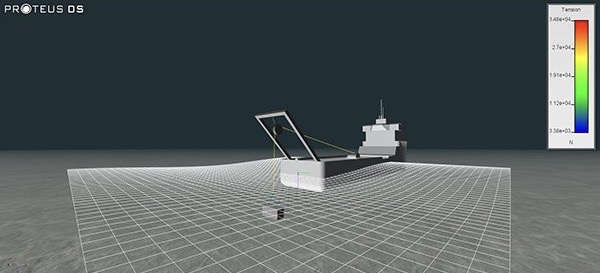Canada’s Ocean Supercluster has announced two new projects worth $4.3 million — a $1.3 million initiative to create a digital engineering platform for designing oceans assets and a $3 million plan to develop seafloor imaging tech for fishing trawlers.
The $1.3 million Virtual Ocean project will include $614,000 of government funding and be led by Victoria, B.C.-based engineering consultancy and software-maker DSA Ocean, which also has offices in Halifax. The software will be developed with the help of Campbell River, B.C.’s aquaculture company Cermaq Canada and will be aimed at more accurately simulating how marine equipment will respond in real-world conditions.
“The challenge we are taking on is how to make it easier for marine organizations to understand how wind, waves, currents will impact their structures,” said DSA Ocean Chief Executive Dean Steinke in a statement. “We’re excited to work with Cermaq to create new products that will be used to support the development of sustainable finfish aquaculture and marine renewable energy in Canada.
“This project is an important first-step for DSA Ocean in creating a suite of easy-to-use marine analysis software tools.”
The $3 million Fishing Smarter Not Harder initiative, meanwhile, will receive $1.5 million worth of Supercluster money to develop a system that uses artificial intelligence to guide decision-making by trawler operators. The program will be led by the Northern Shrimp Research Foundation, which collaborates with the Department of Fisheries and Oceans to survey shrimp fishing zones, with the Nunavut Fisheries Association industry group joining the development as a partner.
“We believe that the technological innovations encompassed in this initiative will support our pursuit of key sustainability objectives including reduced fuel consumption, bycatch avoidance, and reduced seabed contact,” said Northern Shrimp Research Foundation Executive Director Bruce Chapman.
The dual announcements come less than a week after the Supercluster revealed refreshed funding worth a combined $52 million for a raft of 16 ongoing projects related to supply chain resilience and efficiency.










